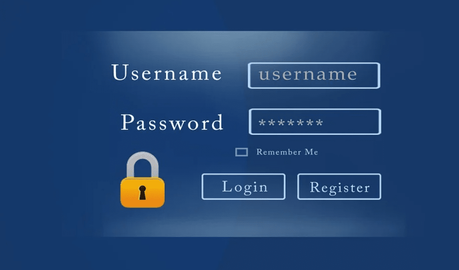Blockchain technology has the potential to revolutionize how business is conducted. It's important for business professionals to understand what blockchain technology is and how it works in order to take advantage of this new innovation.
Grokking Blockchain is a comprehensive guide to understanding blockchain technology. This book provides readers with a solid foundation for understanding how blockchain works and how it can be used to create new business opportunities.
Grokking Blockchain covers everything from the basics of blockchain technology to more advanced topics such as smart contracts and distributed ledger applications. This book also includes a case study on how blockchain is being used to create a new sharing economy.
Whether you're a business professional or a technologist, Grokking Blockchain will give you the insights you need to understand this transformative technology.
Grokking Blockchain is a comprehensive guide to understanding blockchain technology. This book provides readers with a solid foundation for understanding how blockchain works and how it can be used to create new business opportunities. Grokking Blockchain covers everything from the basics of blockchain technology to more advanced topics such as smart contracts and distributed ledger applications. This book also includes a case study on how blockchain is being used to create a new sharing economy. Whether you're a business professional or a technologist, Grokking Blockchain will give you the insights you need to understand this transformative technology.

Grokking Blockchain provides readers with a solid foundation for understanding how blockchain works. The book covers everything from the basics of blockchain technology to more advanced topics such as smart contracts and distributed ledger applications. Grokking Blockchain also includes a case study on how blockchain is being used to create a new sharing economy.
The blockchain is a distributed database that allows for secure, transparent and tamper-proof recording of transactions. The technology was first proposed in 2008 by Satoshi Nakamoto, the pseudonymous creator of Bitcoin, as a way to enable peer-to-peer electronic cash transactions without the need for a central authority.
Since then, the blockchain has been adopted by a wide range of industries and has the potential to revolutionize many other sectors beyond finance. From supply chain management to voting systems, the blockchain is being trialed and implemented in a variety of different use cases.
The key features of blockchain technology are its decentralization, immutability and transparency. By distributed ledger technology, the required data is shared between many different parties and stored in a secure, unified and chronological set of records on the network.
In this article, we explain how blockchain works and why it has become so popular. We also look at some of its benefits, as well as what challenges remain before it can be fully implemented in existing systems.
The blockchain is a distributed database that allows for secure, transparent and tamper-proof record-keeping. Every transaction that takes place on the blockchain is logged and verified by all participating nodes, or computers, in the network.
This verification process ensures that all transactions are valid and that no double-spending can take place.
The security of the blockchain database is achieved through the use of cryptography, or with digital signatures. Each node has a unique digital signature that cryptographically confirms their identity, and every new transaction is verified using this signature as well.
Additionally, each block in the blockchain contains a cryptographic hash of the previous block and all recent transactions in it. This allows for each block to be linked back to the previous one, and all the way back to the very first block in the chain.
If any transaction were to be altered or removed, it would invalidate the hash of the subsequent blocks and be immediately apparent to all nodes in the network.

The inherent security of the blockchain database means that it can be used in any number of applications that require a secure and transparent record-keeping system. This includes applications such as cryptocurrency, digital identity systems, supply chain management, or even voting records.
The use of cryptography also makes the blockchain network incredibly robust and impervious to attacks by cybercriminals, even those that are well-funded and highly sophisticated.
While individual users and organizations can be compromised, the blockchain network as a whole is very secure. This makes it a great choice for any application that involves large amounts of sensitive data or money - such as financial transactions - where security is an absolute necessity.
The blockchain is a distributed database that allows for secure, transparent and tamper-proof record-keeping. It is the underlying technology behind cryptocurrencies like Bitcoin and Ethereum, and has the potential to revolutionize many different industries.
Here are some of the key benefits of blockchain technology:
1. Security: The blockchain is a very secure way of storing data. The records are immutable and can be verified against the entire network.
2. Transparency: All transactions on the blockchain are public and transparent. This allows for a high degree of accountability and traceability.
3. Tamper-proof: Once a record has been added to the blockchain, it cannot be altered or deleted. This makes it ideal for maintaining a secure and tamper-proof record of transactions.
4. Decentralized: The blockchain is decentralized, meaning that it is not controlled by any central authority. This allows for a high degree of autonomy and independence.
5. Efficiency: The blockchain is a very efficient way of storing and processing data. The records are stored in a distributed manner, which reduces the need for costly middlemen.
6. Scalability: The blockchain is highly scalable and can handle a large number of transactions without any slowdown.

7. Flexibility: The blockchain is a very flexible platform that can be used for a wide range of applications.
8. Green: The blockchain is a very energy-efficient way of storing and processing data. This is due to the fact that it doesn't require any central servers or data centers.
9. Interoperable: The blockchain is interoperable, meaning that it can be used with other systems and technologies.
10. Expanding applications: The blockchain is a rapidly evolving technology with many new applications being developed all the time. This makes it ideal for businesses that want to stay at the cutting edge of innovation.
In summary, blockchain technology offers a wide range of benefits to different industries. As this technology continues to evolve and develop, we can expect to see many exciting new applications in the years to come.
Applications of Blockchain-
Blockchain technology is still in its early stages of development but its potential applications are far-reaching. Here are some of the most promising applications of blockchain:
1. Supply Chain Management 2. Identity Management 3. Smart Contracts 4. Decentralized Applications (dApps) 5. Digital Voting 6. Charity and Donations 7. Healthcare Management ConclusionBlockchain technology is still in its early stages of development but its potential applications are far-reaching.
Some of the most promising applications of blockchain include supply chain management, identity management, smart contracts, decentralized applications (dApps), digital voting, charity and donations, and healthcare management.
With so many potential uses, it's only a matter of time until blockchain becomes a staple in many industries.
The supply chain is one of the most important aspects of any business but it's also one of the most vulnerable to fraud and errors. Blockchain can help to streamline the supply chain by creating a transparent and immutable record of all transactions.
This would allow businesses to track their products from start to finish, and it would also make it easier to identify and correct any errors.
Quick LinksAlthough blockchain technology is still in its early stages of development, it has the potential to change how business is conducted online and offline. For businesses that are willing to take a chance on this new technology, there are opportunities to be among the first movers in this space.
As with any emerging technology, there are risks associated with implementing blockchain-based solutions, but those risks may be worth taking for businesses that want to stay ahead of the curve.
